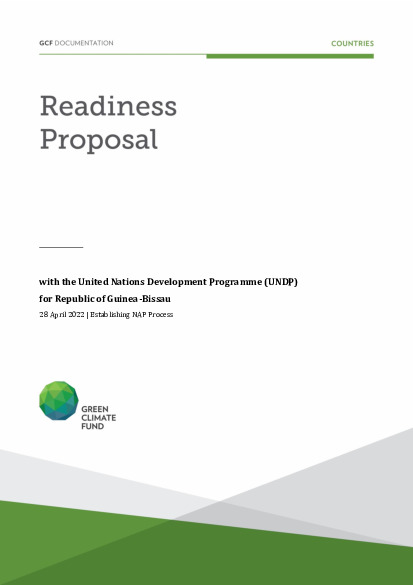Establishing a National Adaptation Planning Process in Guinea- Bissau

Establishing a National Adaptation Planning Process in Guinea- Bissau
Guinea-Bissau is one of the poorest and most fragile countries in the world with two out of three people living in poverty.
Multiple climate-induced risks exacerbate extensive, pervasive development challenges. These climate risks include diminishing rainfall, rising temperatures, and coastal flooding along its extensive mostly lowland and ecologically sensitive coastline combine to threaten the country’s poverty reduction, food security and resilient development efforts
The Government of Guinea-Bissau is committed to establishing a national climate change adaptation planning framework to guide future climate change adaptation policies and investments. The planning framework includes developing a National Adaptation Plan strategy document.
The country has conducted some foundational activities in an effort to cope with climate change including producing a National Adaptation Programme of Action (NAPA) in 2006, a First, Second and Third National Communication, and a Nationally Determined Contribution. Despite these activities, climate change adaptation planning and implementation is still in the very early stages of development.
The goal of this project is to is to strengthen Guinea Bissau’s adaptive and resilient capacities by developing an enabling environment that integrates climate change adaptation into the national planning processes as well as into the agriculture and tourism sectors planning processes. The agriculture sector has been selected included in this project as it is the backbone of the economy, livelihoods and society. In contrast, the tourism sector has been selected as it is the most promising sector for growth, but also vulnerable to climate change.